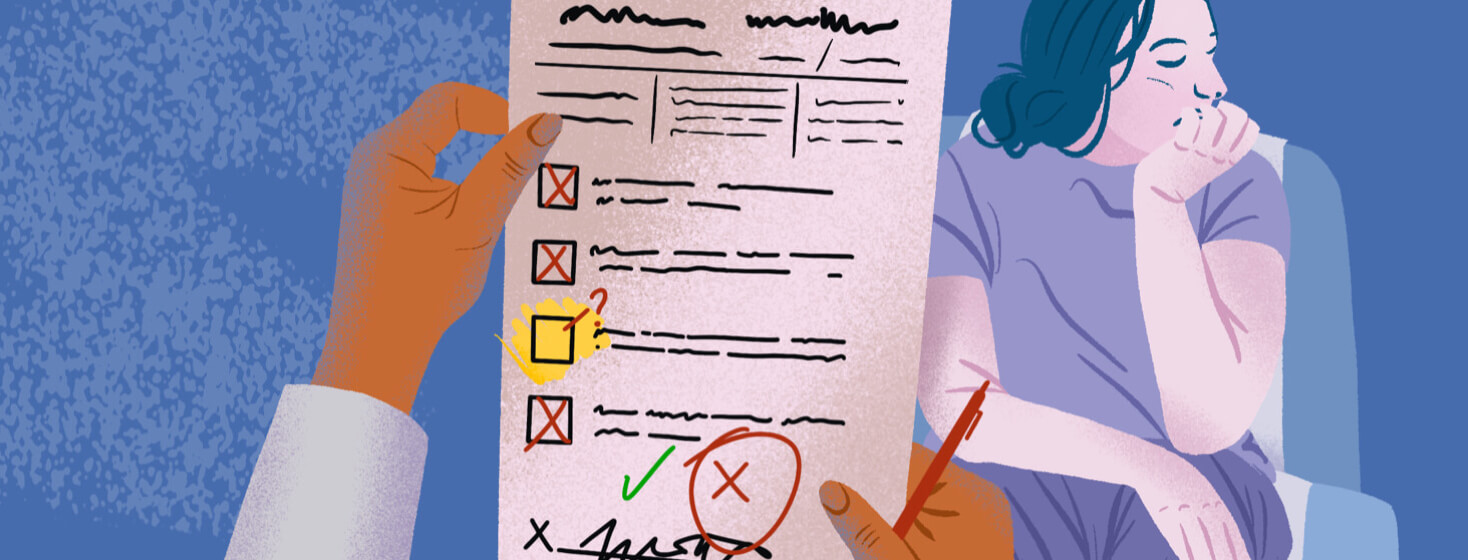Narcolepsy Misdiagnosis: Overlapping Symptoms of Mental Health Conditions
Content Note: This article discusses depression and self-injury. If you or a loved one are struggling, consider reading our mental health resources page.
There is a strong bond between narcolepsy and mental health. In fact, narcolepsy is often misdiagnosed with psychological disorders like depression and anxiety. There are overlapping symptoms that make it difficult to distinguish narcolepsy from mental illness: excessive sleepiness, disturbed sleep, episodes of panic (related to sleep in narcolepsy), along with others.1,2
A running list of psychological disorders
I was diagnosed with depression and anxiety around 14 years old. At that time, I was experiencing disturbed sleep, lack of interest in activities, excessive sleepiness (and therefore excessive sleeping), loss of appetite, and self-injuring thoughts and behaviors.
It was clear to my parents and counselor that depression was the villain and anxiety was the sidekick. Later, borderline personality disorder was tacked on to my running list of psychological disorders.
Could a sleep specialist determine the cause of my daytime sleepiness?
When I saw my first sleep specialist in June 2021, I described the progressively worsening, and now severe, excessive daytime sleepiness. I reported my difficulties staying asleep at night, even when taking mildly sedating medications for sleep. I recounted the nightmarish figures that used to visit me as a child, leading to a significant fear of the dark.
4 main causes of daytime sleepiness
He explained the 4 main culprits of daytime sleepiness. The first was shift work, ruled out immediately by my consistent work schedule during normal business hours. The second and third were sleep apnea and narcolepsy, respectively. He delineated each sleep disorder and the testing required to diagnose or rule them out. Finally, he settled on the final offender: mental health.
It was narcolepsy, not a mental illness
According to my doctor at the time, mental illness was the most likely cause for excessive daytime sleepiness. Because of my long-standing history of depression and anxiety, he proceeded to tell me that this was the most likely cause of my symptoms.
While he may have been providing the most accurate information to his knowledge, I now question the validity of these statements.
Narcolepsy is not well understood
It is said that 1 in every 2,000 people are affected by narcolepsy worldwide.3 That is approximately 0.05 percent of the world population, about 3,000,000 people. Narcolepsy is considered a rare disorder.
However, narcolepsy is not well understood, even by physicians. There is a saying in medicine: when you hear hoofbeats, think horses, not zebras. Plainly stated, this means that the most common cause should be considered above an unlikely one.
Narcolepsy diagnosis challenges
This is usually a good motto for medicine. The most likely cause should be ruled out first, simply because it is the most likely. However, in the case of narcolepsy, this becomes tricky, because the “most likely” cause for common presentations of narcolepsy is depression, which is not easily ruled out.
There are no blood tests, CTs, MRIs, or any other diagnostic test for depression. It is a clinical diagnosis based solely upon symptoms, which often overlap with the symptoms of narcolepsy. On top of this, depression can be a side effect of underlying narcolepsy and can make diagnosis and treatment even more difficult.
Improving narcolepsy education and raising awareness
So, how do we combat this? Only 1 in 2,000 people are affected by narcolepsy, but how many are undiagnosed? How many are misdiagnosed? How rare is this disorder, really?
Amongst the general public, narcolepsy is comical relief in films and television, rather than a serious illness that requires special levels of care and understanding. Therefore, our first charge is education and awareness. It is important to continue sharing our stories, personifying this disorder and providing realistic portrayals of people with narcolepsy.

Join the conversation